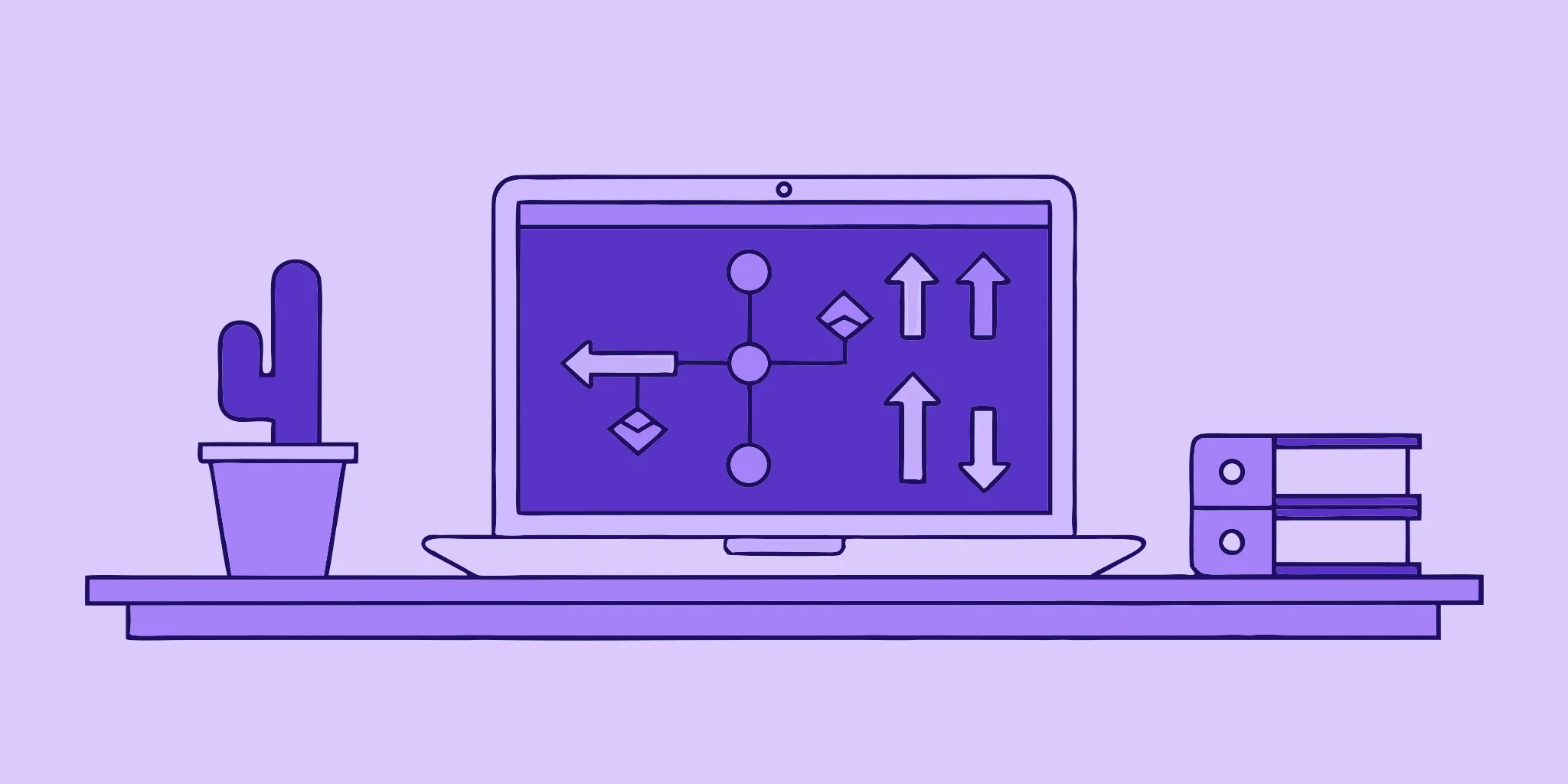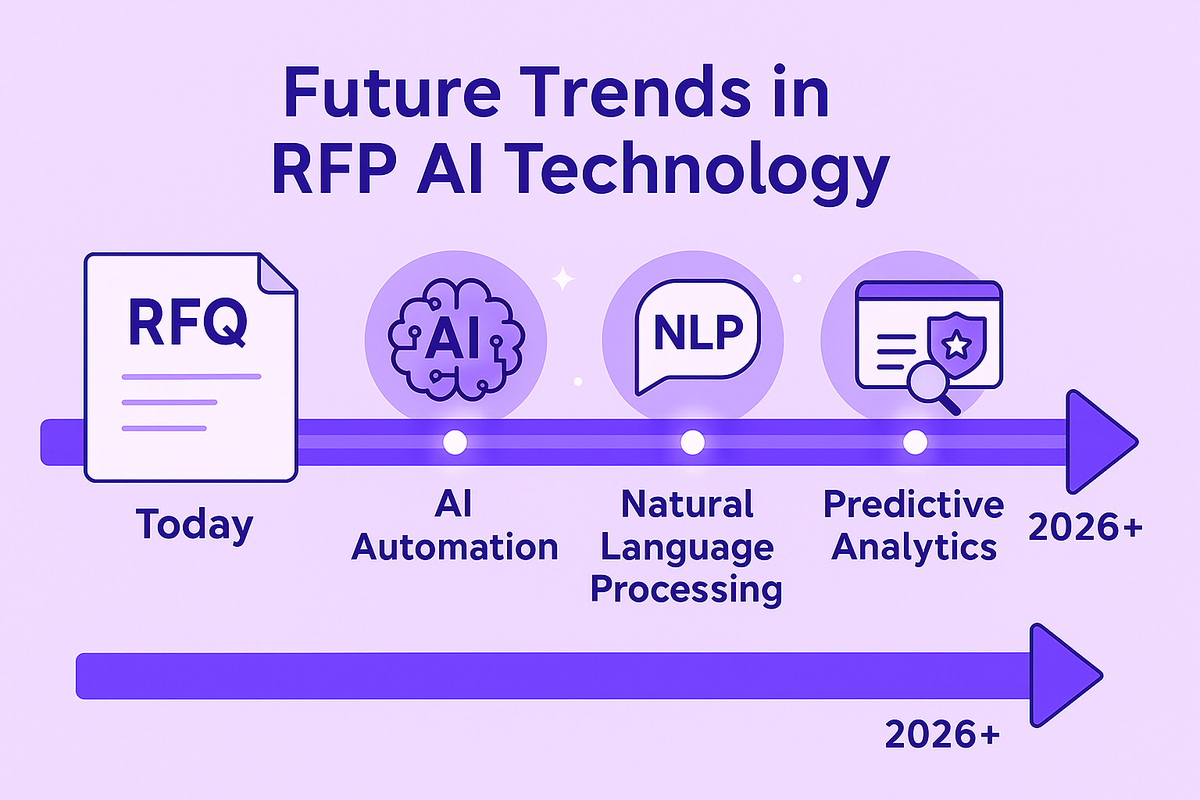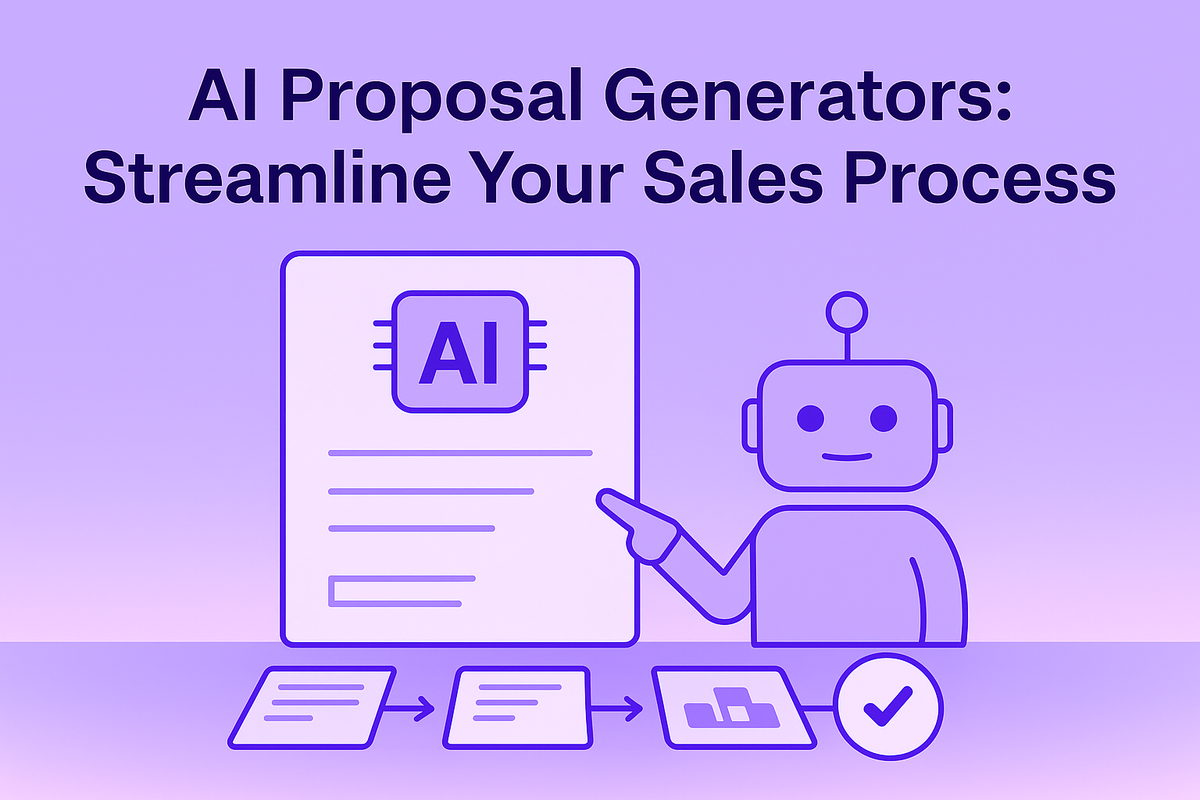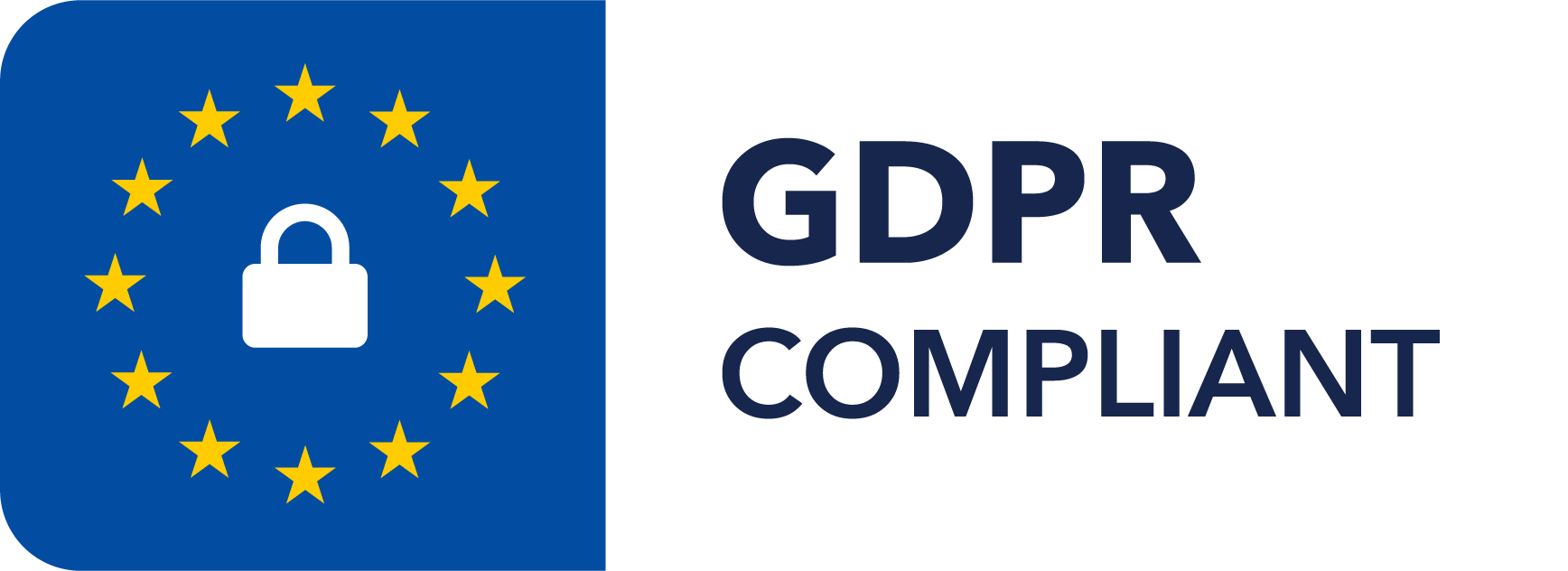AI-Based Due Diligence Insights: A Practical Guide
July 17, 2025
By
Evie Secilmis
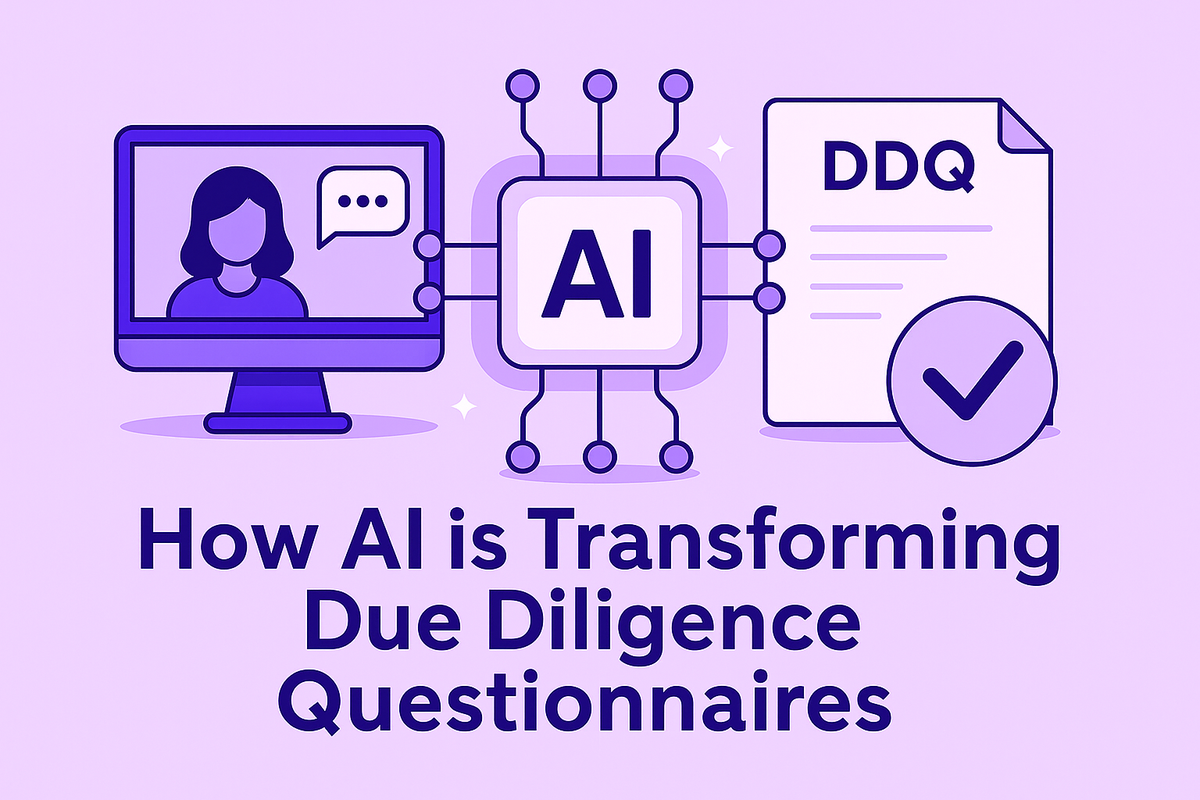
How AI is Transforming Due Diligence Questionnaires
Let's be honest: due diligence questionnaires are vital, but they can be a real drag. The traditional process is slow, repetitive, and leaves far too much room for human error. This is where Artificial Intelligence (AI) completely changes the game. By using AI, you can automate the due diligence questionnaire process, dramatically improving both speed and accuracy. It’s about getting faster, more reliable, and truly insightful results. This shift allows your team to focus on making informed decisions, backed by powerful ai-based due diligence insights instead of getting lost in the paperwork.
AI is transforming due diligence processes by automating tasks that were once manual. This transformation is crucial for businesses that need to evaluate potential partners, suppliers, or investment opportunities swiftly and accurately. Let's delve deeper into how AI is reshaping these processes.
Why Traditional Due Diligence Needs an Upgrade
If you've ever been bogged down by a due diligence questionnaire (DDQ), you know it can feel like a monumental task. The traditional approach to due diligence often involves countless hours of manual work, digging through documents, and coordinating with multiple departments to find the right answers. This process isn't just tedious; it's a significant drain on resources. According to research from Ansarada, "The old way of doing due diligence is slow, costs a lot of money, and takes a lot of effort." For sales and proposal teams, this means less time spent on building relationships and more time buried in paperwork, which can slow down the entire sales cycle and impact the bottom line.
The Problem with the Old Way: Slow, Costly, and Manual
The manual nature of traditional due diligence is its biggest flaw. Imagine your team spending weeks, or even months, sifting through financial records, legal contracts, and HR documents. Each question requires a precise, verified answer, and finding that information can be like searching for a needle in a haystack. This manual effort is not only time-consuming but also expensive, pulling valuable team members away from their core responsibilities. When you're trying to respond to multiple DDQs or RFPs at once, the workload becomes unmanageable, leading to burnout and a higher risk of missing critical deadlines that could cost you the deal.
How Human Error Can Derail a Deal
When people are overworked and facing tight deadlines, mistakes are bound to happen. A single misplaced decimal, an outdated policy document, or a misunderstood question can have serious consequences. In the high-stakes world of business deals, even a small error can create red flags, erode trust, and potentially derail the entire opportunity. This is where technology offers a clear advantage. As Ansarada notes, "AI tools are much less likely to make mistakes than people." By automating the data retrieval and verification process, AI-powered platforms ensure that the information you provide is accurate and consistent, giving you the confidence to submit your responses without worrying about costly human errors.
Understanding the Different Types of Due Diligence
Due diligence isn't a one-size-fits-all process. It's a broad term that covers many different areas of a business, each requiring a specific line of questioning. Understanding these different types can help you prepare for what's coming and organize your information more effectively. Generally, these investigations can be grouped into two main categories: hard and soft due diligence. From there, they branch out into more specific areas, giving potential partners a complete picture of your organization's health and viability. Knowing what to expect helps you streamline your own internal processes for gathering and managing this crucial information.
Hard vs. Soft Due Diligence
The simplest way to think about due diligence is to split it into two buckets. As Ansarada explains, "Due diligence can be split into two main types: Hard Due Diligence, which looks at things you can put a clear money value on, and Soft Due Diligence, which looks at things that are harder to value in money." Hard diligence is all about the numbers—financial statements, assets, and liabilities. It's the quantitative side of the equation. Soft diligence, on the other hand, focuses on the qualitative aspects of a business, such as company culture, the strength of the management team, and employee morale. Both are equally important for a comprehensive evaluation.
Financial, Legal, and Tax Diligence
Within hard due diligence, you'll find several key areas. Financial due diligence involves a deep dive into a company's financial health, including its historical performance, projections, and debt. Legal due diligence examines all legal aspects, such as contracts, pending lawsuits, intellectual property, and corporate structure. This ensures there are no hidden legal liabilities. Tax diligence is closely related, focusing on tax compliance, potential liabilities, and the tax implications of the transaction. These areas form the backbone of any serious business evaluation.
HR and Commercial Diligence
On the softer side, you have areas like HR and commercial due diligence. HR due diligence looks at the people side of the business—employee contracts, compensation, benefits, and any potential labor issues. It assesses the stability and satisfaction of the workforce. Commercial due diligence, also known as market diligence, evaluates a company's position in the marketplace. It examines market size, competition, customer base, and sales pipeline to understand its potential for future growth.
A Simple Framework: The 4 Ps of Due Diligence
To make the process more manageable, some experts use a simple framework known as the 4 Ps. According to Ansarada, "The 4 Ps of due diligence are People, Performance, Philosophy, and Process." This framework provides a structured way to think about the different facets of a business. It helps ensure that you're looking at the company from all angles, from the team running the show to the systems that make it all work. It’s a great mental checklist to use whether you're conducting due diligence or preparing to be on the receiving end of it.
People, Performance, Philosophy, and Process
Let's quickly break down the 4 Ps. People refers to the management team, employees, and overall company culture. Performance covers the company's financial track record and market position. Philosophy gets into the company's vision, mission, and strategic goals. Finally, Process examines the operational side of things—how the company functions day-to-day, its internal controls, and its systems. Together, these four pillars provide a holistic view of a business's strengths and weaknesses.
The Real-World Impact of AI: A Look at the Numbers
The shift from manual to AI-powered due diligence isn't just a theoretical improvement; it has a measurable impact on speed, accuracy, and efficiency. By leveraging artificial intelligence, companies can process vast amounts of information in a fraction of the time it would take a human team. This acceleration is critical in competitive deal-making environments where timing can be everything. The data shows that early adopters of this technology are already gaining a significant edge, transforming a once-dreaded process into a strategic advantage that helps them close deals faster and with greater confidence.
How AI Slashes Due Diligence Timelines
One of the most significant benefits of using AI in due diligence is the dramatic reduction in time. Instead of teams spending weeks manually reading through documents, AI can get the job done in a matter of hours. As V7 Labs reports, "AI can review contracts, financial reports, and other documents in hours instead of weeks, making deals move much faster." This incredible speed is made possible by AI's ability to instantly scan, understand, and extract relevant information from thousands of pages. For businesses using an AI deal desk solution like Iris, this means your team can generate accurate first drafts of DDQs almost instantly, freeing them up to focus on strategic tasks rather than administrative ones.
The Current State of AI Adoption
Despite its clear advantages, the adoption of AI in due diligence is still in its early stages, which presents a major opportunity for forward-thinking companies. According to V7 Labs, "By the end of 2023, only 10% of private funds were using AI in their main business processes," and just "29% of large investment firms are using AI for due diligence." These numbers indicate that there is still a massive opportunity to get ahead of the curve. By implementing AI tools now, you can create a more efficient and accurate response process, giving your business a distinct competitive advantage and positioning you as a leader in your industry.
Let AI Handle Repetitive Tasks
AI's ability to automate repetitive tasks is one of its most significant contributions to due diligence. Tasks such as data entry, cross-referencing documents, and initial screening of potential partners can now be done with minimal human intervention. This not only speeds up the process but also allows employees to focus on more strategic areas.
The automation of these tasks reduces the likelihood of human error, enhancing the overall reliability of the due diligence process. By eliminating mundane tasks, businesses can allocate resources more efficiently and increase productivity.
Tap Into a Wider Range of Data
In due diligence, the breadth of data sources analyzed can be a game-changer. AI has the capability to pull and process data from a wide array of sources, including social media, customer reviews, and industry reports, which were previously too vast for manual processing. This comprehensive data gathering ensures a 360-degree view of potential partners.
By tapping into these diverse data sources, businesses gain a richer understanding of potential risks and opportunities. AI's ability to assimilate and interpret this vast array of data provides a more nuanced view, enabling more informed decision-making.
Make Faster, Smarter Decisions
The rapid pace at which AI can process information significantly accelerates decision-making. In business, time is often of the essence, and AI's ability to provide near-instantaneous analysis is invaluable. This speed can be the difference between capitalizing on an opportunity or missing it altogether.
Quick decision-making does not compromise the quality of due diligence. AI ensures that even rapid assessments are based on accurate, comprehensive data, allowing businesses to act decisively and confidently.
How AI Streamlines Data Collection
One of the most significant advantages of AI in due diligence is its ability to streamline data collection. AI-powered tools can gather data from multiple sources, including financial reports, legal documents, and news articles, in a fraction of the time it would take a human.
Understand Documents Instantly with NLP
AI tools use natural language processing (NLP) to understand and extract relevant information, ensuring that no critical detail is overlooked. NLP enables AI to interpret unstructured data, such as emails or call transcripts, which are often rich with insights but challenging to analyze manually.
This capability ensures that businesses have access to comprehensive information, reducing the risk of oversight. NLP's ability to discern context and meaning in language further enhances the accuracy and relevance of the data collected.
Get Up-to-the-Minute Data
AI's ability to aggregate data in real-time is another transformative feature. This ensures that the information used in due diligence is up-to-date, a critical factor in making informed decisions. Real-time data aggregation allows businesses to respond to developments as they happen, rather than relying on outdated information.
By maintaining a current and accurate data set, businesses can better anticipate potential challenges and adapt strategies accordingly. This agility is a competitive advantage in a constantly changing market landscape.
Reduce Unconscious Bias in Your Analysis
Traditional data collection methods are often subject to human bias, whether intentional or unconscious. AI minimizes these biases by following consistent algorithms and criteria when collecting and analyzing data. This objectivity ensures that the information relied upon is impartial and accurate.
By reducing bias, AI facilitates fairer assessments and more equitable business decisions. This transparency is vital in building trust with stakeholders and maintaining a company’s reputation.
Automate Your Due Diligence Questionnaires (DDQs)
One of the most powerful applications of AI in due diligence is its ability to automate the tedious, repetitive tasks that bog down your team. Think about the hours spent on data entry, cross-referencing documents, and the initial screening of potential partners. AI can handle these tasks with incredible speed and precision, freeing up your experts to focus on more strategic analysis and decision-making. This isn't just about working faster; it's about working smarter. By automating the groundwork, you reduce the risk of human error and ensure a consistent, thorough process every time, allowing your team to concentrate on the insights that truly matter.
How Platforms Like HeyIris.ai Manage Information Requests
So, how does this automation work in practice? Platforms like HeyIris.ai act as a central intelligence hub for all your business information. When a DDQ comes in, instead of manually searching through old documents and databases, the AI can instantly pull and process data from a wide array of connected sources. It understands the questions being asked and can generate accurate, up-to-date first drafts in minutes. This comprehensive approach ensures you have a complete, 360-degree view of the information you're providing. The AI deal desk solution not only accelerates your response time but also proactively identifies outdated information, ensuring every answer is reliable.
Examples of AI Tools in Action
Beyond just answering questionnaires, AI brings a suite of powerful tools to the due diligence process that transform how you analyze information. These tools use sophisticated technologies like natural language processing (NLP) to understand context, identify risks, and summarize vast amounts of data. They can dig into unstructured data sources—like emails, call transcripts, and legal documents—that are often full of critical insights but are nearly impossible to analyze manually at scale. Let's look at a couple of specific examples of how these AI capabilities are being applied to make due diligence more effective and efficient.
AI for Contract Analysis
Contracts are the backbone of any business relationship, but they can be dense and complex. AI tools are exceptional at contract analysis, scanning thousands of pages to spot risks, inconsistencies, and non-standard clauses that a human reviewer might miss. This capability is crucial during due diligence, as it can flag potential liabilities or contractual obligations that could impact a deal. By using AI to analyze legal documents, you can build a more accurate risk profile and make decisions with a much deeper understanding of the commitments you're evaluating.
AI for Document Summarization and Redaction
During due diligence, you're often flooded with an overwhelming volume of documents, from financial reports to internal memos. AI-powered summarization tools can quickly distill these lengthy documents into concise, digestible summaries, highlighting the most critical information. This allows your team to grasp key points without spending days reading. Similarly, AI can automate the redaction of sensitive information, ensuring that you maintain confidentiality and compliance while sharing necessary documents. These features dramatically cut down on manual review time, helping you move through the due diligence process with greater speed and focus.
Get a Clearer View of Potential Risks
AI excels at analyzing large datasets to identify patterns and anomalies. In due diligence, this capability is invaluable for risk assessment. AI algorithms can detect potential red flags, such as financial irregularities or past legal issues, that might not be immediately apparent to human analysts.
Uncover Risks You Might Otherwise Miss
AI's pattern recognition capabilities allow it to uncover hidden correlations that might be missed by human analysts. For example, it can reveal connections between seemingly unrelated events or entities, providing a deeper understanding of potential risks.
These insights enable businesses to anticipate and mitigate risks before they materialize, safeguarding their interests and investments. By identifying these hidden patterns, companies can make proactive, rather than reactive, decisions.
Focus on the Risks That Matter Most
Not all risks are equal, and AI can help prioritize them based on their potential impact. By evaluating various factors, such as market conditions and historical performance, AI can rank risks, helping businesses focus on the most critical areas.
This prioritization allows for more efficient allocation of resources and attention, ensuring that the most significant risks are addressed promptly. By focusing on the most impactful risks, businesses can better protect their assets and reputation.
Keep an Eye on Risks 24/7
AI enables continuous monitoring of risk factors, providing ongoing insights rather than static snapshots. This continuous assessment is essential in a dynamic business environment where risks can evolve rapidly.
By maintaining a constant vigil on risk factors, businesses can adjust their strategies in real-time, preventing small issues from becoming significant problems. This proactive approach to risk management enhances resilience and adaptability.
Finding Actionable AI-Based Due Diligence Insights
AI doesn't just automate data collection and analysis; it also provides insights that can enhance decision-making. Machine learning algorithms can assess historical data to predict future trends, offering businesses a strategic advantage.
Learn from the Past with Historical Data
Machine learning algorithms thrive on historical data, using it to train models that can predict future outcomes. By analyzing past performances, AI can identify trends and patterns that inform strategic decision-making.
This analysis of historical data provides a foundation for forecasting, enabling businesses to anticipate market shifts and adjust their strategies accordingly. By understanding past trends, companies can make informed predictions about future developments.
Model Different Future Scenarios
AI's predictive capabilities extend to scenario planning, allowing businesses to model various outcomes based on different assumptions. This helps companies prepare for a range of possibilities, enhancing their ability to adapt to changing circumstances.
Scenario planning with AI provides a structured approach to uncertainty, helping businesses develop contingency plans for potential challenges. This foresight is invaluable in maintaining stability and continuity in unpredictable environments.
Support Your Big Strategic Moves
AI-driven insights empower strategic decision-making by providing a comprehensive view of potential risks and opportunities. By integrating AI insights into their planning processes, businesses can make decisions that are both informed and forward-thinking.
These insights allow companies to capitalize on opportunities while minimizing risks, positioning them for long-term success. Strategic decision-making informed by AI enhances a business's ability to innovate and thrive in competitive markets.
AI is Your Co-Pilot, Not the Pilot
It’s tempting to think of AI as a magic button that solves every problem, but it’s more accurate to see it as a highly skilled co-pilot. It’s not here to take over the controls completely; it’s here to create a powerful partnership between machine intelligence and human expertise. AI is brilliant at the heavy lifting—it can analyze vast datasets, cross-reference documents, and spot anomalies with a speed and accuracy that humans simply can't match. Unlike us, AI doesn't get tired or overlook a crucial detail buried in page 500 of a report. This is where the real transformation happens. By automating the most repetitive and time-consuming parts of due diligence, AI frees up your team to focus on what they do best: strategic analysis and critical thinking.
This shift from manual data gathering to strategic oversight is a game-changer. Instead of spending their days chasing down documents, your experts can spend their time interpreting the information AI provides. The true value isn't just about doing things faster; it's about enabling your team to ask better questions and uncover insights that might have otherwise stayed hidden. This is the philosophy behind tools like HeyIris.ai. Our platform is designed to generate the first draft of your DDQs and other complex proposals, handling the initial workload so your team can apply their unique expertise to refine, strategize, and perfect the final response. It’s about augmenting your team’s talent, not replacing it.
Why Human Expertise is Still Essential
For all its analytical power, AI lacks something fundamental: human judgment. It can process endless streams of data, but it can't fully grasp the subtle context, cultural nuances, or complex interpersonal dynamics that often define a business deal. An AI can flag a risk in a contract, but it can't sit across a table and negotiate a better term or assess the cultural fit between two merging companies. These are skills that come from experience, intuition, and a deep understanding of human behavior.
Ultimately, the most critical decisions require human oversight. While AI is an incredible tool for identifying potential issues, it takes an experienced professional to understand the bigger picture, weigh the qualitative factors, and make the final call. Your team’s expertise is what turns AI-generated data into a winning strategy. The combination is what’s truly powerful: AI provides the comprehensive, unbiased data, and your team provides the wisdom and strategic thinking to act on it effectively.
How AI Improves Due Diligence Accuracy
The accuracy of AI in processing and analyzing data is another key benefit. Human error is a common concern in traditional due diligence processes, but AI minimizes this risk. By automating repetitive tasks, AI reduces the chances of mistakes, ensuring that the information is reliable and precise.
Cut Down on Costly Human Errors
AI's precision in handling data significantly reduces errors compared to manual processes. Algorithms follow strict protocols, ensuring consistent and accurate data processing. This precision is critical in due diligence, where even minor errors can have significant consequences.
Reducing errors not only enhances the reliability of the data but also builds trust with stakeholders. Accurate data is the foundation of sound decision-making, and AI ensures this foundation is solid.
Trust Your Data, Trust Your Decisions
The reliability of AI-processed data increases confidence in the information's accuracy. When stakeholders trust the data, they are more likely to support decisions based on it, facilitating smoother implementation of strategies.
Confidence in data also translates to better stakeholder relationships, as transparency and accuracy are key components of trust. AI's ability to provide dependable data strengthens these relationships, fostering collaboration and alignment.
Use AI That Gets Smarter Over Time
AI's ability to learn and improve over time further enhances its accuracy. As algorithms are exposed to more data, they refine their models, increasing their predictive accuracy. This adaptive learning ensures that AI remains a valuable tool for due diligence, continually improving its performance.
By continuously evolving, AI keeps pace with changing business environments, providing cutting-edge insights and analysis. This adaptability is crucial for maintaining a competitive edge in a rapidly advancing technological landscape.
Ready to Implement AI? Here's How
While the benefits of AI in due diligence are clear, implementing these technologies requires careful planning and consideration.
First, Figure Out What You Really Need
Before selecting AI tools, businesses must thoroughly evaluate their specific needs and objectives. Understanding the unique challenges and goals of the organization will guide the selection process, ensuring the chosen tools align with strategic priorities.
This evaluation process involves input from various departments, including IT, compliance, and operations, to ensure a holistic approach. By aligning AI tools with business needs, companies can maximize the technology's effectiveness.
Start Small, Win Big
Jumping into a full-scale AI implementation can feel overwhelming. Instead of trying to overhaul your entire process at once, start with the small, repetitive tasks that consume your team's time. Think about data entry, cross-referencing information, or initial document screening. Automating these tasks is a perfect first step because it delivers immediate value by reducing the chance of human error and freeing up your experts to focus on more strategic analysis. This approach allows you to test the waters and see tangible results quickly, building a solid case for broader adoption without a massive initial investment.
Once your team sees how AI can reliably handle the tedious work, you'll build momentum and trust in the technology. This confidence makes it easier to scale up to more complex challenges, like having AI analyze thousands of pages of contracts or financial reports. Platforms like HeyIris.ai are designed to manage these extensive information requests, whether they're in a Due Diligence Questionnaire or an RFP. As the AI learns and improves from each task, so does your process. You're not just getting a one-time efficiency gain; you're building a smarter, more accurate due diligence system that evolves with your business.
Making AI Fit with Your Current Tools
Implementing AI requires seamless integration with existing systems and processes. This integration ensures that AI tools complement, rather than disrupt, current workflows. Careful planning and collaboration with IT departments are essential to achieving this integration.
By ensuring compatibility with existing systems, businesses can leverage AI's capabilities without sacrificing efficiency. This integration supports a smooth transition to AI-driven processes, minimizing disruptions and maximizing benefits.
Choose a Partner, Not Just a Product
Choosing AI tools with robust vendor support is crucial for successful implementation. Vendors should offer comprehensive training and support to ensure teams can effectively use the technology. This support helps overcome initial challenges and fosters confidence in using AI tools.
Training programs should be tailored to the specific needs of the business, ensuring that employees are equipped to maximize the technology's potential. Continuous support from vendors ensures that businesses can fully leverage AI's capabilities.
Getting Your Team On Board with AI
For AI to be effective, team members must understand how to use these tools correctly. Providing comprehensive training is essential to ensure that employees can maximize the technology's potential.
Create a Training Plan That Sticks
A structured training curriculum is essential for successful AI adoption. This curriculum should cover all aspects of the AI tools, from basic functionalities to advanced features, ensuring all users are confident in their abilities.
Training should also address potential challenges and troubleshooting techniques, empowering employees to overcome obstacles independently. By developing a comprehensive curriculum, businesses can ensure a smooth transition to AI-driven processes.
Get Your Team Excited to Use It
Encouraging user engagement is crucial for successful AI adoption. Demonstrating the tangible benefits of AI, such as increased efficiency and accuracy, can motivate employees to embrace the technology.
Creating a supportive environment where users can share experiences and insights further fosters engagement. By facilitating open communication and collaboration, businesses can enhance user buy-in and drive successful adoption.
Set Up a System for Support and Feedback
Ongoing support and feedback are vital components of AI adoption. Regular check-ins and feedback sessions provide opportunities to address concerns and make necessary adjustments. This support ensures that employees feel valued and heard, fostering a positive attitude towards AI tools.
Feedback also informs continuous improvement efforts, helping refine training programs and support strategies. By maintaining open lines of communication, businesses can ensure successful long-term adoption of AI technology.
Let's Talk About the Ethics of AI
As with any technology, AI raises ethical considerations, particularly regarding data privacy and bias. Businesses must ensure that their AI systems comply with relevant regulations and ethical standards.
Keeping Your Sensitive Data Safe
Protecting data privacy is a fundamental ethical concern when implementing AI. Businesses must establish robust data governance policies to safeguard sensitive information. These policies should comply with relevant regulations, such as GDPR, to ensure legal compliance.
By prioritizing data privacy, companies can build trust with stakeholders and demonstrate their commitment to ethical practices. This commitment is essential for maintaining a positive reputation and fostering long-term relationships.
How to Tackle Bias in AI Algorithms
AI algorithms can inadvertently perpetuate bias if not carefully managed. Businesses must take proactive steps to identify and mitigate bias in their AI systems, ensuring fair and equitable outcomes. This involves regularly auditing algorithms and refining them to address potential biases.
By prioritizing fairness and equity, businesses can enhance the credibility and reliability of their AI tools. This commitment to ethical AI practices is crucial for building trust and maintaining stakeholder confidence.
Promoting Transparency and Accountability
Transparency and accountability are key to addressing ethical concerns in AI. Businesses should be open about their AI practices and decision-making processes, providing stakeholders with clear insights into how AI tools are used.
This transparency fosters trust and ensures that stakeholders are informed and engaged. By promoting accountability, businesses can demonstrate their commitment to ethical practices and build a strong reputation.
The "Black Box" Problem: Understanding AI's Decisions
Sometimes, AI can feel like a "black box"—it gives you an answer, but the reasoning behind it isn't always clear. This can be a problem if the AI was trained on biased data, as it might unintentionally reproduce those biases in its analysis. To address this, it's important to manage AI systems proactively. This means regularly checking the algorithms for potential biases and refining them to ensure the outcomes are fair and equitable. By taking these steps, you can trust that the insights you're getting are not only fast and accurate but also responsible, helping you build a due diligence process that stands on a foundation of fairness.
Considering Cost, Data, and Integration Hurdles
Bringing AI into your workflow involves more than just choosing a new tool; it requires some planning. You'll need to think about the initial cost, the quality of the data you'll use to train it, and how it will connect with your current systems. The goal is for AI to complement your team's work, not complicate it. A successful rollout depends on seamless integration with the tools you already use every day. This is why working closely with your IT department from the start is so important. A well-planned integration ensures your new AI platform becomes a natural part of your process, helping your team work more efficiently without disruption.
Staying Compliant with Regulations like the EU AI Act
With any new technology, new rules are bound to follow. Regulations like the EU AI Act are emerging to create standards for how artificial intelligence is used. It’s natural to wonder how this affects your business. The good news is that these regulations primarily focus on high-risk AI systems, such as those used in critical infrastructure or medical devices. For most business applications, including IT due diligence and proposal management, the compliance requirements are much more straightforward. Often, it’s simply a matter of being transparent that you are using AI in your process, which is a simple step to take for the massive efficiency gains you receive.
What's Next for AI in Due Diligence?
The future of AI in due diligence is promising. As technology continues to advance, AI will become even more integral to these processes, offering new capabilities and opportunities for innovation.
Smarter, Faster AI is on the Horizon
Continuous advancements in AI technology promise to enhance its capabilities in due diligence. As AI becomes more sophisticated, it will handle increasingly complex tasks, providing even greater value to businesses.
These advancements will enable businesses to leverage AI for more strategic and innovative applications, driving competitive advantage. By staying abreast of technological developments, companies can remain at the forefront of AI-driven due diligence.
Due Diligence Tailored to Your Needs
AI's future in due diligence involves greater personalization, allowing businesses to tailor processes to specific needs and contexts. This personalization enhances relevance and accuracy, ensuring that due diligence efforts are closely aligned with business objectives.
By leveraging AI for personalized insights, businesses can develop more targeted strategies, enhancing their effectiveness and impact. This focus on personalization will be a key driver of AI's continued success in due diligence.
Where AI Will Show Up Next
AI's role in due diligence will expand as new applications emerge. The integration of AI with other emerging technologies, such as blockchain and the Internet of Things (IoT), will further enhance due diligence processes.
These integrations will create a more connected and efficient due diligence ecosystem, enabling businesses to make even more informed decisions. By exploring new applications of AI, businesses can unlock additional value and drive innovation.
Your Next Steps with AI Due Diligence
AI is transforming due diligence questionnaires by automating data collection, enhancing risk assessment, and providing valuable insights. By embracing AI, businesses can streamline their due diligence processes, reduce risks, and make more informed decisions.
As AI technology continues to evolve, its role in due diligence will only grow, offering new opportunities for innovation and competitive advantage. By staying ahead of the curve, businesses can leverage AI to drive success in today's dynamic business environment.
Want to learn more about DDQs? Check out the article: DDQs Explained
Frequently Asked Questions
Is AI going to make my team’s expertise irrelevant? Not at all. Think of AI as a highly efficient assistant, not a replacement. It’s designed to handle the most time-consuming and repetitive parts of the due diligence process, like digging through documents and finding specific data points. This frees up your team to focus on the work that truly requires human intelligence: strategic analysis, interpreting complex information, and making final judgment calls. The goal is to let the machine do the heavy lifting so your experts can apply their knowledge more effectively.
How is this any different from just using a keyword search in our company drive? A simple keyword search can only find exact matches for the words you type in. AI, on the other hand, understands context and intent through natural language processing. It can interpret the meaning behind a question in a DDQ, even if the wording is different from what’s in your documents. It then synthesizes information from multiple sources to construct a complete and accurate answer, rather than just pointing you to a file where a keyword appeared.
Our company information is a mess and stored in a dozen different places. How can AI possibly sort through it all? This is exactly the kind of problem AI platforms are built to solve. A solution like an AI deal desk acts as a central intelligence hub that connects to all your existing systems, whether it's SharePoint, a shared drive, or other databases. It learns where your information lives and creates a single source of truth. So, when a DDQ comes in, the AI knows precisely where to look to pull the most current and relevant information, saving your team from the usual frantic search.
How can I be sure the answers generated by AI are completely accurate? The best way to use AI in this process is to treat it as a tool for creating a powerful first draft. While the technology is incredibly accurate at pulling the correct data, human oversight remains essential. Your team’s role shifts from manually writing every answer from scratch to reviewing and refining the AI-generated responses. This approach combines the speed and precision of the machine with the critical thinking and expertise of your team, ensuring the final submission is both fast and flawless.
This sounds like a huge undertaking. What’s a realistic way to get started without disrupting everything? You don’t have to overhaul your entire process overnight. The best approach is to start small and focus on a specific pain point. Identify one type of questionnaire or a set of repetitive tasks that consistently bogs your team down. By implementing an AI tool to automate just that one area, you can demonstrate its value quickly and build confidence within your team. This allows you to get a tangible win and learn the ropes before expanding its use to other parts of your workflow.
Key Takeaways
- Let AI handle the repetitive tasks: Automating data collection and analysis for DDQs frees your team from tedious manual work. This results in faster, more accurate responses and gives your experts more time to focus on strategy and closing deals.
- Use AI as a partner, not a replacement: AI is brilliant at processing data and spotting risks, but human expertise is essential for understanding context and making critical judgment calls. The best outcomes happen when machine efficiency is guided by human wisdom.
- Start with small, high-impact changes: You don't need to transform your entire process overnight. Begin by using AI for simple, time-consuming tasks to see immediate benefits, reduce errors, and build your team's confidence in the technology.
Related Articles
Share this post
Link copied!



